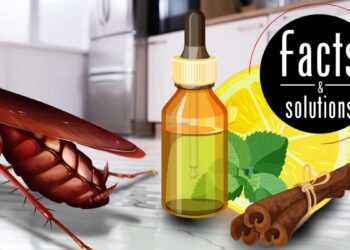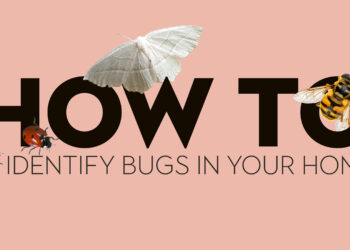Everyone wants a pest-free home. Achieving this doesn’t mean reaching straight for the chemical sprays. Instead, natural pest control herbs offer a safe and eco-friendly solution. These amazing plants not only ward off pesky bugs but also come without the harmful side effects associated with synthetic pesticides. They help safeguard our health, the environment, and even improve our living spaces with their soothing aromas. However, failing to use them correctly can lead to infestations persisting. In this blog, you’ll learn about common pest problems, explore the wonders of natural pest control herbs, and discover effective prevention methods to protect your home. Let’s turn your pest-free dreams into reality!
What Exactly Are Natural Pest Control Herbs?
When we talk about ‘natural pest control herbs,’ we’re referring to plants that help keep pesky invaders at bay without relying on harsh chemicals. These herbs, like basil, mint, and rosemary, can repel a variety of pests such as mosquitoes, flies, and moths. But it’s not just insects—some herbs deter larger critters like mice, too. Pretty handy, right?These herbs thrive in gardens or pots, enjoying sunny spots with good drainage. But pests, they’re a bit less picky. They often hang out in cluttered corners, damp areas, or around leftover food—real party animals if you ask me!
So, how do you know if you’ve got an unwanted guest? Look for nibbled leaves, unexpected droppings, odd smells, or even chewed wires and holes in cupboards. These are all tell-tale signs of an infestation. And don’t ignore them, as pests can pose health risks by spreading diseases. Keep an eye out!
Potential Challenges with Using Natural Pest Control Herbs
- Structural Damage: You might not think much about it, but some herbs used for natural pest control, like mint, can be invasive if not properly contained. They can overgrow and spread quickly, leading to root systems that disrupt the structural integrity of garden beds and sometimes even foundations if planted too close. If mismanaged, they might turn from allies to architectural adversaries.
- Health Risks: Certain natural pest control herbs can trigger allergies depending on an individual’s sensitivity. For instance, herbs such as eucalyptus can release volatile oils that may cause respiratory issues for some people when used in strong concentrations. Always ensure you know how your body might react to these herbs.
- Food Contamination: While not typically harmful, some herbs with strong oils or fragrances can inadvertently alter the taste of nearby fruits and vegetables. This can happen when essential oils seep into the soil or cross-contaminate through the air, making your carrots taste faintly like basil.
- Property Devaluation: Overgrown or improperly managed herb gardens can appear unkempt, potentially decreasing curb appeal. This aesthetic issue might concern future buyers more focused on a neat, low-maintenance landscape than eco-friendly pest solutions.
- Damage to Pets and Gardens: Pets exploring the garden might chew on herbs like rue or pennyroyal, which can be toxic. Additionally, while these herbs repel unwanted insects, they might deter beneficial insects like pollinators, reducing garden yields.
- Neighbour Relations: Lastly, some herbs spread vigorously and might encroach into neighboring gardens, causing friction. Keep a friendly relationship by planting these herbs in containers or ensuring their boundaries are well-managed.
Effective Natural & Home Remedies Using Pest Control Herbs
Eco-friendly and non-toxic pest control methods are not only kinder to the environment but are also safer for your family and pets. Curious about trying some simple DIY remedies? Here’s a mix of natural approaches that’ll help keep those pesky critters at bay:- Essential Oils: Oils like peppermint, eucalyptus, and lavender aren’t just lovely to smell—they’re also potent pest deterrents. Mix a few drops with water in a spray bottle and spritz around windows, doorframes, and other entry points. It’s a whiff of goodness and a bug’s signal to buzz off.
- Vinegar Solutions: Vinegar is a versatile household staple. When mixed with water, it can deter ants and fruit flies. Simply whip up a 50/50 vinegar-water solution and wipe down counters or spray around problem areas. It’s an easy, cost-effective repellant with no trails left behind.
- Natural Predators: Embrace nature by allowing beneficial insects to handle pest control. For instance, ladybirds love munching on aphids and can keep plant invaders under control. Encourage their presence by planting flowers like daisies and marigolds in your garden.
- Herbal Magic: Herbs like garlic, basil, and mint have strong scents that repel insects. Plant them around your garden or use their oils as a barrier around doors and windows. Not only do these herbs deter pests, but they also spice up your cooking!
- Homemade Traps: You can easily make sweet-and-sour traps for fruit flies using apple cider vinegar and a bit of washing-up liquid in a jar. The vinegar lures them in, and they can’t escape the soapy demise! It’s a small trap with big results.
Using herbs as a natural alternative to chemical treatments.
Are you ready to take control of the creepy crawlies lurking in your home but prefer a natural approach? There’s an intriguing world of natural pest control herbs and their related chemical treatments that can help you in your pursuit. Using chemicals that are derived from natural herbs can be a safe and effective way to manage those troublesome invaders. Let’s dive into some options!- Neem Oil: This natural pesticide is derived from the seeds of the neem tree and acts as a repellent. Apply neem oil by mixing it with water and a dash of liquid soap, then spray it in areas infested by pests for a natural, effective treatment.
- Pyrethrin: Extracted from chrysanthemum flowers, pyrethrin targets the nervous systems of insects. Use it by mixing with water and spraying on plants to keep pesky bugs at bay while preserving your greenery.
- Diatomaceous Earth: Formed from fossilized algae, this powder dehydrates insects by damaging their exoskeletons. Simply dust it around the perimeter of your home or directly on plants to create a barrier that pests won’t want to cross.
- Borax: Though commonly used as a cleaning agent, borax is also an effective natural pesticide. Create a mix with sugar and sprinkle it in areas where ants or other insects travel for a sweet but deadly invitation.
Practical Tips to Prevent Pests Using Natural Herbs
It’s important to stay on top of potential pest problems before they become absolute nightmares. An effective way to ensure your home stays pest-free is by adopting prevention strategies. Here’s a structured list to guide you through:- Proper Waste Disposal and Cleanliness: Keep your home tidy and dispose of rubbish regularly. Pests like rodents and cockroaches are attracted to leftover food and rubbish bins.
- Sealing Entry Points and Cracks: Regularly inspect your home for cracks and holes that might serve as entry points for pests. Use caulk or other appropriate materials to seal them.
- Using Pest Deterrents: Install screens on windows and doors to prevent pests from entering. Consider using natural deterrents like essential oils or herbs, which can be effective and non-toxic.
- Regular Inspections and Maintenance: Schedule regular inspections for signs of pests. Look for droppings, nest materials, or unusual smells. If needed, consult professional pest control services for a thorough check.
- Garden Maintenance: Keep your garden neat and remove any debris, as these can attract pests. Trim trees and bushes to keep them from touching your house, preventing easy access to pests.
- Proper Food Storage: Store food items in airtight containers to keep them safe from pests. Ensure your pantry is clean and free of crumbs.
- Check for Leaks: Fix any leaks promptly, as moisture can attract pests like termites and mould-producing insects.
- Pet Care: If you have pets, make sure their bowls are clean and food is not left out for too long, as this can attract pests like ants or flies.
Dispelling Myths About Natural Pest Control Herbs Effectiveness
| Myth | Fact |
|---|---|
| All herbs repel every pest effectively. | No single herb is effective against all pests. Each herb works best against specific insects. |
| Natural herbs are completely harmless. | While generally safer, some herbs can cause allergic reactions or be toxic to pets and children if ingested. |
| Natural herbs kill pests instantly. | Natural herbs usually repel rather than kill pests, and their effectiveness can vary over time. |
| Plants automatically emit pest-repellent substances. | Most herbs need to be crushed or processed to release their pest-repelling oils and scents. |
| You don’t need any other pest control methods if you use herbs. | Herbs should complement other holistic pest control strategies for the best results. |













